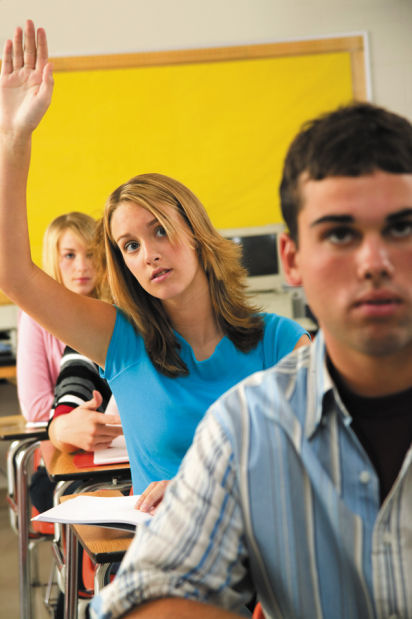LIHUE — A Kauai school nurse and educator is opposed to a controversial pilot sex education program called Pono Choices.
The program hasn’t be introduced to Kauai schools while its under review by a special committee, but nurse Dely Sasaki said the program is too far off base to think of introducing here because it teaches middle school students inappropriate subject matter.
“I am appalled at the decision to teach middle schoolers explicit lessons on having sex, including transgender sex, gay and lesbian sex, anal and oral sex to our children,” Sasaki wrote in an email last week to over 90 Kauai churches and church leaders. “To think that these lessons are being taught to 11 year olds is beyond my ability to comprehend.”
She sent the email on the eve of the deadline to submit opinions about the program to the Department of Education.
Sasaki, who worked for the department of health for 28 years teaching in schools and was also the manager for all the school nursing programs on Kauai, wants the DOE to prohibit the use of the program in the name of morality.
Kelly Roberts, principal investigator from the University of Hawaii Manoa, was involved in the development of The Pono Choices curriculum funded by the Federal Office of Adolescent Health. She provided insights to a specially convened nine-member group of stakeholders Thursday on how the program was developed.
“The OAH found Pono Choices to be age appropriate and medically accurate,” Roberts said. “We are educating the kids so that they can make informed choices. They learn that if you have unprotected sex, there can be possible consequences.”
During the pilot testing process last year, student feedback surveys garnered that there is too much information being presented and that it needs to be more succinct, Roberts said. She said the curriculum writers thought the students weren’t being subjected to anything they couldn’t find online or talking with friends.
“If the children have access to media, they are getting exposed to it anyway, so rather than get misinformation, they will get the facts,” she said.
One Kauai pastor who is also an educator and has written curriculum himself says the Pono Choices program gives students way too much information that they don’t need at that age. He said that there are some good elements to the 10-module program but other elements of it are age inappropriate.
“My wife flipped out when she saw the videos. The basics about sexuality are all you need to teach as far as the parts and pieces and how they work and how you can potentially get in trouble if you aren’t aware of the consequences of your actions,” said the pastor, who did not want to be named. “It’s like getting a driver’s license. It takes a certain amount of maturity and responsibility. If you don’t have the maturity in both situations, you could get into trouble and hurt a lot of people along the way.”
In November 2013, the DOE temporarily placed the pilot program on hold to address concerns about whether the curriculum was aligned with health education state law and policy. A subsequent UH review of its copyrighted curriculum concluded Pono Choices met the standards. But the working group continues to analyze the program and whether it meets statutory requirements and Board of Education requirements regarding a sexual health education curriculum.
Kauai School Complex Superintendent Bill Arakaki couldn’t say if Pono Choices curriculum would be implemented in Kauai middle schools.
“Until we receive the results from the working group on their findings and recommendation, I am not able to make a determination on the matter,” he said.
Public concerns about Pono Choices are coming during a time when, according to the Centers for Disease Control, the U.S. teen pregnancy, birth, sexually transmitted disease and abortion rates are substantially higher than those of other Western industrialized nations.
As far as the teen birth rate in the state of Hawaii for ages 15-19 in 2012, it was ranked 26 in the United States, according to a poll published on The National Campaign to Prevent Teen and Unplanned Pregnancy website. That translates to 28.1 births for every 1,000 girls.
As far as the outcome of Sasaki’s anti-Pono Choices email message, she said, “I thank God that there was not one (church leader) who disagreed with me. The message even got to the public and private schools. Someone told me today (Thursday) that teachers are very upset, but that they are afraid to protest because it may impact their jobs.”
• Lisa Ann Capozzi is a features/education reporter and can be reached at lcapozzi@thegardenisland.com.




